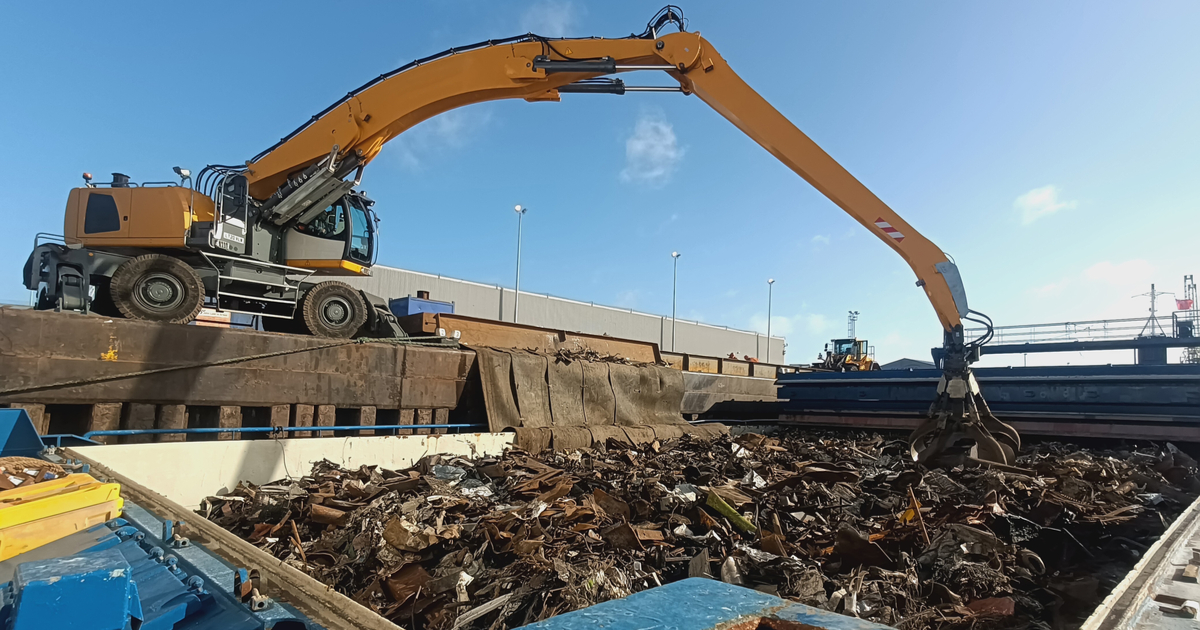India–US Trade Tensions Rise Over Steel and Auto Tariffs NMDC Limited reports a 38% drop in Q4 FY24 consolidated net profit RINL to Raise $23 Million Through Land Sales Amid Crisis

In May, global scrap prices remained mostly unchanged in most of the world's major markets. There were no price swings of more than $10/t.
The favourable trend at the beginning of the year was driven by improved market mood, which resulted from increased demand for raw materials after the holidays. Simultaneously, following a protracted period of high pricing, adjustments were made in late winter and early spring. This was caused by Turkey's macroeconomic issues, a slowdown in the Chinese steel market, and an increase in the availability of scrap.
Due to the weak demand for steel, steel companies do not have an immediate need for purchases, making May the month with the lowest monthly average scrap prices in Turkey throughout the spring. In addition, scrap prices are under pressure from a decline in the price of square billets.
Weak steel sales, pressure on finished product prices, and low margins at steel mills are holding back purchases of scrap, especially imported scrap, which requires booking large batches of raw materials. The mills have chosen a wait-and-see attitude to assess the outlook for the steel market. At the same time, the supply of raw materials is sufficiently high to prevent price increases.
At the same time, prices for raw materials are not falling below $380/t, as suppliers have indicated that this is the lowest operating level due to the slow collection rate and the strengthening of the euro.
Expectations for the Turkish steel and scrap market's future prospects are negative. Currently, scrap prices are squeezed into a fairly narrow range, as mills cannot afford higher levels due to pressure on steel prices, and suppliers, particularly Europeans, do not agree to lower levels due to slow collection rates.
The European market showed a mixed trend in May. In particular, in Italy, scrap prices (E8 Light New Scrap) increased by €10/t – to €380-410/t Ex-Works in the period from May 3 to 24, while in Germany (E3) they remained stable at €340-355/t Ex-Works. At the same time, Italian prices reached €420/t but declined due to a drop in market consumption. The German market saw prices stabilize during the month due to low demand from domestic steel mills and a decline in exports.
As scrap becomes more available in Western and Southern Europe, mainly due to lower demand from Turkey and North Africa, steel mills are more confident and believe that prices will decline slightly in June.
North America saw a slight decline in prices in May, down $10/t – to $335-340/t (US Midwest Delivered Basis) as of May 24. As supply and demand have balanced out and industry fundamentals are still insufficient to support commodity prices, prices have slightly adjusted downward. In addition, the market recovery was not helped by the maintenance shutdowns of some steel mills. Additional pressure came from a drop in domestic hot-rolled steel prices and weaker export expectations and demand.
In June, scrap prices are expected to remain unchanged or slightly decrease as market fundamentals are still not strong enough to support prices. As of May 27, 2024, the price of Heavy Scrap in the Chinese market was $386.2 per tonne, up 2% from the price as of May 1.
In May, raw material prices in China strengthened amid improving prospects for steel consumption. Scrap consumption increased after Labor Day, which was accompanied by an increase in productivity and capacity utilization at electric arc furnace mills. In addition, prices were supported by a decrease in the supply of raw materials due to environmental inspections in some regions of the country. At the same time, the market is still quite volatile, and scrap does not have a price advantage over pig iron, so further growth expectations are limited.
The outlook for the global scrap market is negative. Turkey, the world’s largest importer of raw materials, faces numerous obstacles, including a decline in sales of finished products due to the loss of the Israeli market and an expected increase in production costs. The European and North American markets are heavily dependent on demand from Turkey, which has not yet shown any positive signals. Prices may be supported by an improvement in the Chinese steel market amid numerous consumption incentives from the authorities.
Also Read : India working to develop own pure-hydrogen based DRI tech for green-steel making China's steel exports climbed by 24% y/y in Jan-Jun